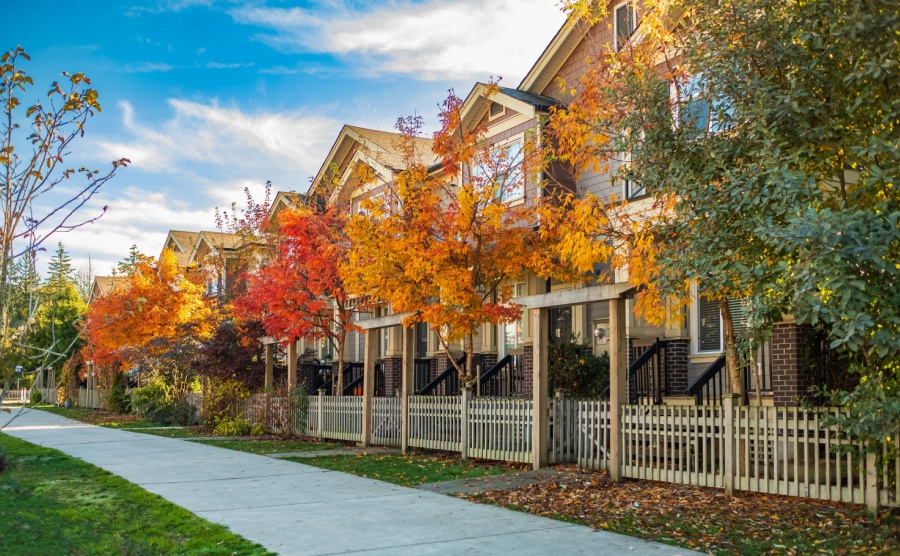Once you’ve settled on a location and identified the type of property you want to buy, the next step is ensuring your finances are structured to support that decision. Purchasing real estate in Canada as an overseas buyer involves more than just securing the funds – it requires a clear understanding of your financial position, the costs involved, and the impact of cross-border transactions.
This article outlines the essential financial considerations for non-residents buying in Canada. From evaluating funding sources and navigating local mortgage requirements to understanding tax implications and associated fees, it provides a structured overview to help you plan with precision. You’ll also learn how exchange rate fluctuations can affect your budget – and how to mitigate that risk with the right tools.
By approaching your purchase with a well-informed financial strategy, you can move forward with greater certainty and avoid unexpected setbacks.
Contents

It’s never too soon to start planning the finances for your home in Canada
Financing your move
Before diving into the logistics of your property purchase, it’s essential to establish how you will finance it. Identify your financial sources from the beginning, which could include savings, inheritance, pension funds, the sale or remortgage of your UK property, or other assets. A clear understanding of your available funds will prevent you from pursuing properties that exceed your budget.
Securing a mortgage from a Canadian bank should be straightforward if you pass a credit check. You will need to provide proof of income and the necessary deposit, typically ranging from 20% to 35% for non-residents. Once you submit the required documentation, you can expect to receive a decision within 48 hours. However, remember that foreign banks typically do not offer mortgages for properties in Canada.
Key points to consider while planning your budget include:
- The total amount of money available for your property purchase.
- The deposit required if you choose to finance through a mortgage and how you will manage monthly repayments.
- The possibility of remortgaging your UK home to release equity.
- Costs associated with buying a property, including taxes and fees.
- Ongoing property maintenance costs and your overall lifestyle expenses.
- Your maximum allowable purchase price, including taxes and fees.

Unfortunately, you can’t afford to ignore tax when buying overseas
Tax matters
When acquiring property in Canada, it’s crucial to budget for relevant taxes. If you’re renting out the property, you will be liable for income tax on rental income, even as a non-permanent resident.
Additionally, you’ll need to prepare for land transfer tax, which depends on the property’s value – approximately 1% for the first $200,000 and 2% on amounts exceeding that limit. Under certain conditions, such as being a permanent resident with no other property ownership, you might qualify for exemptions. Always consult your provincial government for specific tax information.
Also, notify the tax authorities in your home country of your change of circumstances to ensure your tax obligations are current. As tax implications vary based on personal circumstances, consulting a tax professional is advisable.
Moreover, consider inheritance tax as it may impact you. Establishing a will in Canada is a prudent step to safeguard your loved ones’ interests.

Failing to prepare your finances can cost you significantly
Knowing the costs of buying
Thoroughly understanding the costs associated with purchasing property in Canada is essential. In addition to annual expenses, you should foresee maintenance fees and your lifestyle costs, which will vary depending on the property type, purchase price, and whether you are financing with a mortgage.
As a general guideline, budget around 3–7% of the property value for associated buying expenses, which is significantly lower compared to most European countries. Some costs to include in your budget are:
- Property Survey: Expect to pay between $400 and $2,000, depending on the property’s size and complexity. A typical certified home inspection will cost between $400 and $700.
- Title Insurance: Generally included in legal fees, but if separate, budget up to $400.
- Estoppel Certificate Fee: Approximately $100, applicable for condominium purchases.
- Conveyancing/Legal Fees: Typically range from 0.5% to 1% of the property value. For a $400,000 property, expect legal fees around $1,500.
- Land Transfer Tax: Applicable unless purchasing in areas like Alberta, rural Nova Scotia, or Saskatchewan; rates in British Columbia and Ontario range from 0.5% to 2% based on property value.
- Agent’s Fees: Typically borne by both the seller and the buyer, around 2.5%.

The currency markets are always fluctuating, but you can protect your budget
Common financial mistakes
One of the most significant mistakes potential buyers make is underestimating the impact of currency exchange rates on the final purchase price and associated costs. If you need to convert currency to fund your purchase, fluctuations in exchange rates can lead to unexpected expenses.
The currency market is dynamic, and rates can change dramatically throughout the day. Many overseas buyers miss the opportunity to secure a stable exchange rate by utilizing a forward contract, which allows them to lock in today’s rate for a future transaction. This financial strategy aids in effective budgeting and protects against unforeseen expenses.
As soon as you decide to buy property in Canada, consult a currency exchange specialist. Companies like Smart Currency Exchange offer competitive rates, often saving you up to £4,000 for every £100,000 exchanged compared to traditional banks.
By planning ahead and understanding your financial landscape, you can navigate the property buying process in Canada with confidence and clarity.
Book a free call with one of our consultants to talk in more detail about preparing your finances to buy your dream Canadian home.





